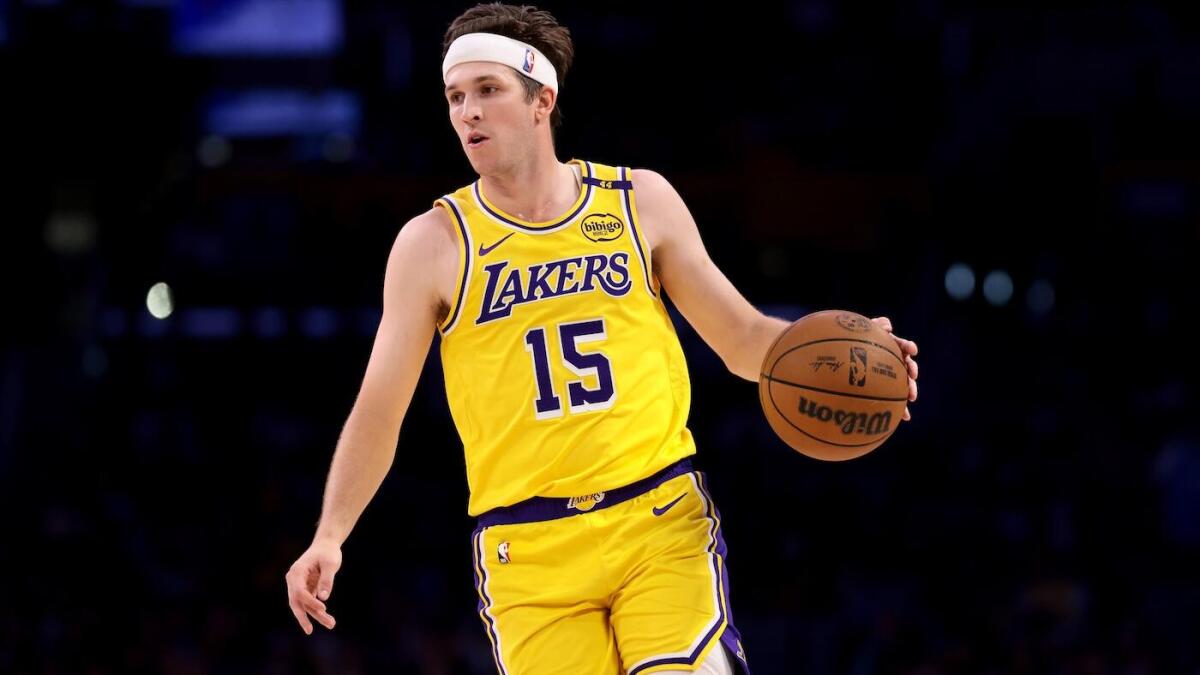Austin Reaves’ decision to decline an $89.2 million contract extension with the Los Angeles Lakers has sent shockwaves through the NBA, sparking discussions about player value, team strategy, and the evolving dynamics of contract negotiations in the modern league. This move, while financially risky, underscores Reaves’ confidence in his abilities and his belief that he can secure an even more lucrative deal in the future. For the Lakers, this decision presents both an opportunity and a challenge, as they must navigate the delicate balance between retaining key talent and maintaining financial flexibility.
Reaves’ journey from an undrafted free agent to a pivotal player in the Lakers’ lineup is a testament to his work ethic and adaptability. His steady improvement over the past few seasons has earned him a starting role alongside LeBron James and Anthony Davis, making him an indispensable part of the team’s core. His ability to contribute in multiple facets of the game—scoring, playmaking, and defense—has made him a valuable asset, and his decision to decline the extension is a calculated risk that could pay off handsomely if he continues to excel.
The financial implications of Reaves’ decision are significant. By opting to play out the remainder of his current contract, he positions himself to enter unrestricted free agency in 2025, where he could command a significantly higher salary. The NBA’s salary cap is projected to continue its upward trajectory, and if Reaves maintains his current level of play, he could secure a contract worth upwards of $100 million. This strategy is not without risk, as injuries or a decline in performance could diminish his market value. However, given his track record and the demand for versatile guards in today’s NBA, Reaves appears to be making a sound business decision.
For the Lakers, Reaves’ decision presents both short-term and long-term challenges. In the immediate future, the team benefits from having a high-caliber player at a relatively low cost, as his current contract pays him $13.5 million and $14.9 million over the next two seasons. This financial flexibility allows the Lakers to pursue other high-profile free agents or make trades to bolster their roster. However, the team must also be mindful of the potential consequences of Reaves’ decision. If the Lakers fail to meet expectations in the coming seasons, Reaves could become a prime trade target, and the team risks losing him for nothing in free agency.
The Lakers’ front office must carefully weigh their options moving forward. One potential strategy is to trade Reaves before the 2025 free agency period, capitalizing on his value while they still have control over his rights. This approach would allow the team to acquire assets in exchange for Reaves, mitigating the risk of losing him for free. However, trading a fan favorite and key contributor could have negative repercussions, both in terms of team chemistry and public perception. Alternatively, the Lakers could choose to retain Reaves and attempt to convince him to re-sign with the team once he hits the open market. This strategy would require the team to demonstrate their commitment to contending for championships, as Reaves is likely to prioritize winning and financial security in his decision-making process.
Reaves’ decision also highlights the shifting power dynamics in NBA contract negotiations. In the past, undrafted players were often seen as lucky to secure a roster spot, let alone a significant contract. However, the modern NBA values versatility and three-point shooting, and players like Reaves, who excel in these areas, are in high demand. This shift has empowered players to take control of their financial futures, as evidenced by Reaves’ decision to decline the extension. The Lakers, like other teams, must adapt to this new reality and recognize that retaining key talent requires not only competitive rosters but also fair and competitive contracts.
The fan reaction to Reaves’ decision has been a mix of concern and understanding. While some Lakers supporters are worried about the potential loss of a key player, others recognize the business aspect of the decision and support Reaves’ right to maximize his earning potential. The Lakers’ front office must be mindful of this sentiment and work to address fan concerns while also making decisions that are in the best interest of the team. Transparent communication and a clear vision for the future can help alleviate some of the anxiety surrounding Reaves’ decision and demonstrate the team’s commitment to building a championship-contending roster.
In conclusion, Austin Reaves’ decision to decline an $89.2 million contract extension with the Lakers is a complex issue that touches on various aspects of the modern NBA. For Reaves, this decision represents a bet on his future and a strategic move to maximize his earning potential. For the Lakers, it presents both opportunities and challenges, as they must navigate the delicate balance between retaining key talent and maintaining financial flexibility. The outcome of this situation will have significant implications for both Reaves and the Lakers, and it serves as a reminder of the ever-evolving nature of the NBA landscape. As the league continues to change, players and teams must adapt to new realities and make decisions that align with their long-term goals and aspirations.

